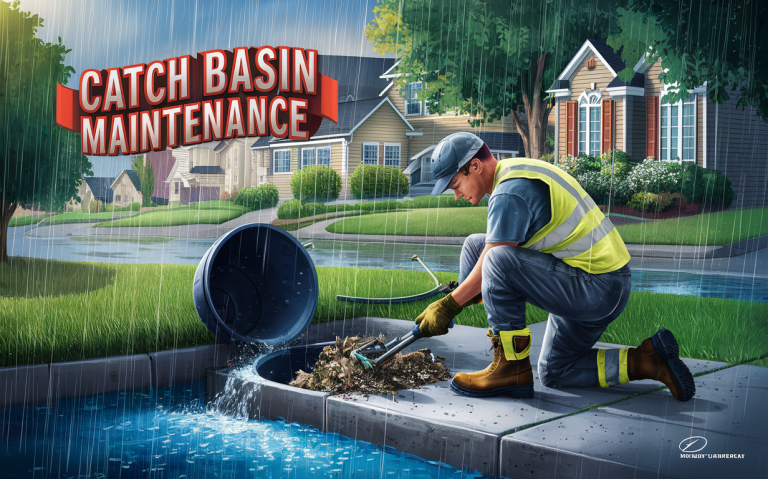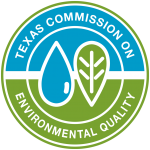Expert Guide: Specialized Waste Management Essentials
Specialized Waste Management: Expert guide on septic services, wastewater treatment, and eco-friendly disposal.
Specialized waste management is crucial for maintaining environmental health and safety. It involves handling and disposing of waste in a manner that is safe, efficient, and compliant with regulations. This will provide insight into specialized waste management practices, focusing on septic and wastewater services, and offer practical advice for both residential and commercial customers.
Table of Contents
Key Takeaway
- Specialized waste management ensures safe and efficient disposal of waste.
- Septic and wastewater management requires specialized skills and equipment.
- Properly licensed and insured companies offer peace of mind.
- Regular maintenance prevents costly repairs and environmental hazards.
- Professional tools and equipment ensure reliability and safety.
The Importance of Specialized Waste Management

Specialized waste management is not just about disposing of waste; it is about doing it in a way that protects human health and the environment. This includes managing various types of waste, from household septic tanks to commercial grease traps.
Environmental Impact
Improper waste management can lead to severe environmental consequences. Contaminated water can harm wildlife and plant life, and improper disposal of hazardous materials can lead to soil and water pollution.
Regulatory Compliance
Compliance with local, state, and federal regulations is non-negotiable in waste management. Specialized waste management companies must adhere to strict guidelines to ensure that waste is handled and disposed of correctly.
Health and Safety
Handling waste can pose significant health risks if not done properly. Specialized waste management ensures that waste is handled safely, reducing the risk of exposure to harmful substances.
Services Provided by Specialized Waste Management Companies
Specialized waste management companies offer a range of services to meet the needs of residential and commercial customers. These services include septic tank pumping, grease trap pumping, and excavation services.
Septic Tank Pumping
Regular septic tank pumping is essential to prevent system failures and maintain efficiency. A full septic tank can lead to backups and leaks, posing health risks and environmental hazards.
Benefits of Regular Septic Tank Pumping
- Prevents backups and costly repairs.
- Extends the life of the septic system.
- Reduces the risk of environmental contamination.
Grease Trap Pumping
Grease traps in commercial kitchens need regular maintenance to prevent blockages and ensure smooth operation. Grease trap pumping removes accumulated fats, oils, and grease (FOG) that can clog pipes and cause unpleasant odors.
Necessity of Grease Trap Pumping
- Prevents clogs and blockages in the plumbing system.
- Ensures compliance with health and safety regulations.
- Improves efficiency and reduces maintenance costs.
Excavation Services
Excavation services are often required for installing or repairing septic systems. Specialized equipment and expertise are necessary to ensure that excavation is done safely and efficiently.
Types of Excavation Services
- Land Clearing: Removing vegetation and debris to prepare for construction or installation.
- Building Demolition: Safely tearing down structures to make way for new projects.
- Utility Trenching: Creating trenches for utility lines, such as water or sewer pipes.
The Role of Professional Equipment

Using professional-grade tools and equipment ensures that waste management tasks are completed efficiently and safely. High-capacity pump trucks, excavators, and other specialized tools are integral to providing high-quality service.
High-Capacity Pump Trucks
Pump trucks are the backbone of septic and wastewater services. High-capacity trucks can handle large volumes of waste, making them ideal for both residential and commercial projects.
Excavators
Excavators are essential for digging and earth-moving tasks. They are used for installing septic systems, land clearing, and utility trenching.
Innovative Techniques in Waste Management

Innovation plays a crucial role in improving waste management practices. Texway Wastewater Services incorporates advanced techniques to enhance its services.
Video Inspections
Video inspections allow for a detailed examination of septic systems without invasive digging. This technology helps identify issues such as leaks or blockages, making repairs more efficient.
Septic Tank Filters
Installing septic tank filters can prevent solids from entering the drainage field, extending the life of the system and reducing maintenance costs.
Comparison of Traditional vs. Specialized Waste Management
| Aspect | Traditional Waste Management | Specialized Waste Management |
|---|---|---|
| Environmental Impact | Higher | Lower |
| Regulatory Compliance | Basic | Strict |
| Health and Safety | Moderate | High |
| Equipment Used | General | Specialized |
| Cost Efficiency | Variable | High |
Common Waste Management Services and Their Benefits
| Service | Benefit |
|---|---|
| Septic Tank Pumping | Prevents backups, extends system life |
| Grease Trap Pumping | Prevents clogs, ensures compliance |
| Excavation Services | Safe and efficient site preparation |
| Video Inspections | Non-invasive, accurate issue identification |
| Septic Tank Filters | Reduces maintenance, extends system life |
Regular Maintenance: A Key to Efficiency
Regular maintenance of septic systems and grease traps is essential for their efficient operation. Neglecting maintenance can lead to costly repairs and environmental hazards.
Scheduling Regular Pumping
Setting a regular schedule for septic tank and grease trap pumping can prevent issues before they arise. For most households, septic tanks should be pumped every 3-5 years, while commercial grease traps may require more frequent attention.
Routine Inspections
Routine inspections help identify potential problems early. This proactive approach can save time and money in the long run.
Tips for Effective Specialized Waste Management
- Hire a licensed and insured company to ensure compliance and safety.
- Schedule regular pumping to keep your septic system running smoothly.
- Use professional-grade equipment for reliable results.
- Install septic tank filters to reduce maintenance needs.
- Conduct routine inspections to catch issues early.
Conclusion
Specialized waste management is essential for maintaining a safe, efficient, and environmentally friendly waste disposal system. By understanding the importance of regular maintenance, using professional equipment, and hiring experienced professionals, you can ensure that your septic and wastewater systems operate smoothly. Texway Wastewater Services offers expert guidance and reliable service, making them a trusted partner in specialized waste management.
By implementing the strategies outlined in this article, you can protect your investment, ensure regulatory compliance, and contribute to a healthier environment. Remember, proper waste management is not just about disposal; it’s about doing it right.
Additional Resources
- Environmental Protection Agency (EPA): Guidelines and regulations on waste management.
- Local Health Departments: Information on local regulations and compliance.
- Professional Associations: Organizations like the National Onsite Wastewater Recycling Association (NOWRA) provide resources and support for waste management professionals.
For more information or to schedule a service, contact Texway Wastewater Services at (817) 889-4007 or visit their website.






 Texway Wastewater Services is a septic, wastewater, and excavation company based out of Burleson, Texas and serving the surrounding areas. We specialize in
Texway Wastewater Services is a septic, wastewater, and excavation company based out of Burleson, Texas and serving the surrounding areas. We specialize in